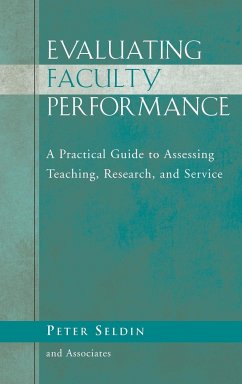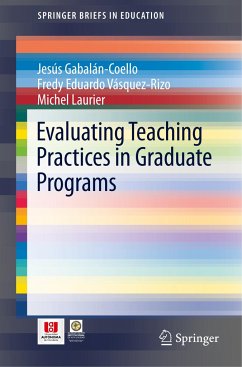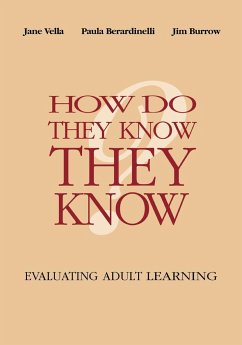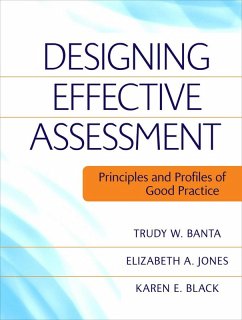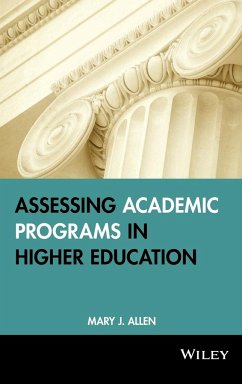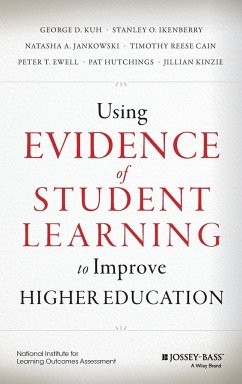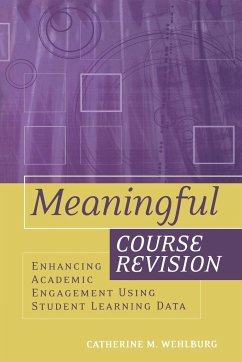
Changing Practices in Evaluating Teaching
A Practical Guide to Improved Faculty Performance and Promotion/Tenure Decisions
Versandkostenfrei!
Versandfertig in über 4 Wochen
43,99 €
inkl. MwSt.

PAYBACK Punkte
22 °P sammeln!
This book offers university and college administrators and faculty the kind of research-based and ready-to-use information required to foster truly effective and equitable teaching evaluation at their institutions. Seldin shares his years of extensive research on this topic, uniquely examining the transformation of evaluation trends over the past two decades, while pointing out the implications for the future. He and his noteworthy contributors not only cite the compelling reasons why colleges and universities must institute fair teaching evaluation systems, they also show readers how to do so...
This book offers university and college administrators and faculty the kind of research-based and ready-to-use information required to foster truly effective and equitable teaching evaluation at their institutions. Seldin shares his years of extensive research on this topic, uniquely examining the transformation of evaluation trends over the past two decades, while pointing out the implications for the future. He and his noteworthy contributors not only cite the compelling reasons why colleges and universities must institute fair teaching evaluation systems, they also show readers how to do so. Changing Practices in Evaluating Teaching is a complete guidebook, this volume offers a wide array of forms, case studies, web sites, tables, and examples. It is written for presidents, provosts, academic vice presidents, deans, department chairs, instructional development specialists, and faculty-- the essential partners in improving teaching evaluation systems. Contents include: * Current Practices--Good and Bad--Nationally * Student Ratings of Professors: Uses and Misuses * Using Feedback to Improve Teaching * Evaluating Teaching Through Peer Classroom Observation * Self-Evaluation: What Works? What Doesn't? * Post-Tenure Review: Evaluating Teaching * Evaluating Teaching Through Electronic Classroom Assessment * Using the World Wide Web to Improve Teaching Evaluation * Evaluating Teaching Through Portfolios * Administrative Courage to Evaluate the Complexities of Teaching * Building a Climate Conducive to Effective Teaching Evaluation * Building Successful Teaching Evaluation Programs * Summary and Recommendations for Evaluating Teaching



